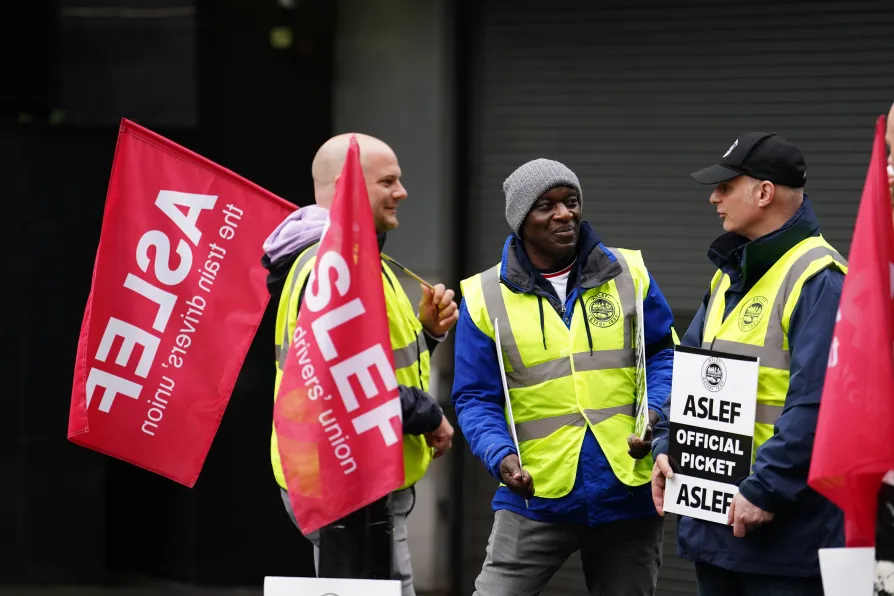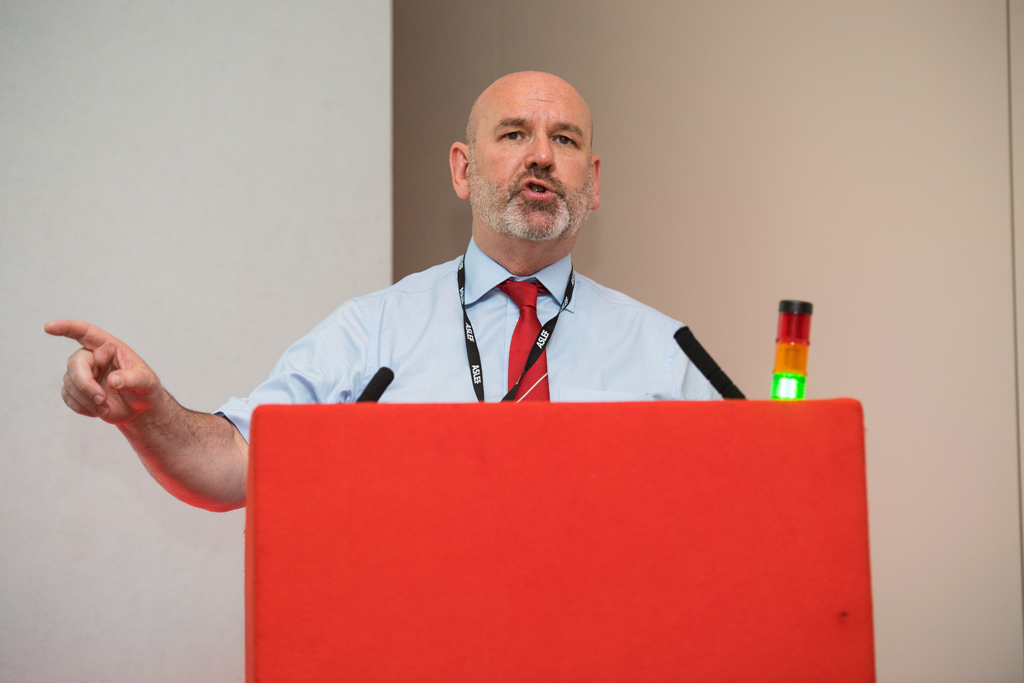As tens of thousands return to the streets for the first national Palestine march of 2026, this movement refuses to be sidelined or silenced, says PETER LEARY
As the labour movement meets to remember the Tolpuddle Martyrs, MICK WHELAN, general secretary of train drivers’ union Aslef, says it’s an appropriate moment to remind the Labour government to listen to the trade unions a little more

 Train drivers from the Aslef union on the picket line at Euston station in London, April 5, 2024
Train drivers from the Aslef union on the picket line at Euston station in London, April 5, 2024
AS THE sun rose in Dorset on February 24 1834, George Loveless, a Methodist lay preacher and farm labourer, kissed his wife Betsy and their three children goodbye and set off to work. He didn’t see them again for three years. Because, as George left his cottage in the village of Tolpuddle, he was served with a warrant for his arrest.
George was one of six agricultural labourers — the others included his brother James Loveless; James Hammett; James Brine; Thomas Standfield and his son John Standfield — charged by the authorities with making an illegal oath. Their real crime was forming a trade union to protest about their pay of six shillings a week. “My Lord,” explained George at his trial, “we were uniting to preserve ourselves, our wives and our children, from utter degradation and starvation.”
The Tolpuddle Martyrs were sentenced at Dorchester Assizes to seven years’ transportation for having the temerity to stand up for themselves — for standing together — to fight against poverty and austerity and to fight for better terms and conditions of employment. That is what trade unions have been doing for the best part of 200 years. That is why the story of Tolpuddle and its martyrs is at the heart of the history of the trade union movement in Britain. And that is what we are doing here at Tolpuddle this weekend.
Let us not forget that the Labour Party was formed, by the trade unions, and the socialist societies, in 1900 as the Labour Representation Committee at a meeting in Farringdon, central London, just a few hundred yards from where the Aslef head office stands today. My union affiliated three years later, in 1903, and is still affiliated today. The 29 Labour Representation Committee MPs returned to Westminster at the general election of 1906 elected Keir Hardie as leader and adopted the name of the Labour Party.
We remember, too, the landslide victory of Labour in the khaki election of 1945 and the great achievements of that Labour government: the creation of the National Health Service and welfare state and the nationalisation, if not of the means of production, at least of key industries such as coal, iron and steel, gas, electricity, and, of course, Britain’s railways.
I have always argued that the worst Labour government is better than the best Conservative government and, while we were disappointed that the Blair-Brown governments from 1997 to 2010 didn’t bring our privatised railways back into public ownership, or scrap the Tories’ anti-union laws, those years were still better for Britain than the dark days of Thatcher and Major from 1979 to 1997, and of the Cameron coalition, May, Johnson, Truss, and Sunak from 2010 to 2024.
And now? Well, it’s early days. It’s only just over a year since Labour swept back into power and this fledgling government inherited the worst economic inadequacy, the legacy of 14 years of Tory austerity, most of us have ever seen. Some of the hopes, and expectations, of immediate change — promised, of course, by Keir during the election campaign last year — have not, as yet, been fulfilled.
But we (and I don’t just mean Aslef, I mean all the trade unions affiliated to the party) have had more engagement with government in the last 12 months than we had in the previous 14 years! The new Labour government’s first Bill, last year, was to renationalise the railway. It isn’t perfect; it doesn’t include the freight companies or the rolling stock companies. But they said they would do it and they did it.
They said they would dump minimum service levels — the ideologically driven Tory law to make strike action by workers in this country ineffective — and they have.
They also told us that, in the first 100 days, they would bring forward a New Deal for Workers. And they did. We haven’t got everything we wanted but this is — and let there be no mistake or misunderstanding about this Employment Rights Bill — the biggest step-change for workers in this country in a generation.
But while this new Labour government has done many good things in the last 12 months, it has, as we all know, made rather too many mistakes. Some of which are, frankly, quite baffling.
While we recognise that we need to grow the economy, and not overtax the individual, the idea that we can do it by taking money from the poorest in society — the winter fuel allowance and the personal independence payment — is not the right way to go. Which was made clear to the government — slow as it was to appreciate the depth of feeling on these issues — by the response of trade unions and Labour MPs who said this was not the direction of travel we should be taking.
Over Palestine, we have seen a disproportionate response by Israel to the Hamas attacks and the Labour government appears to be floundering. The Labour Party, and the labour movement, has always been best when it has a moral purpose, and a clarity of vision, and a determination to do the right thing. Which has been markedly absent in its response to the killings, every day, in Gaza and the expansion of illegal settlements in the West Bank.
The Labour government would be more sure-footed, and more successful, if it listened a little harder to what the trade unions have to say, and acted a little more decisively on our advice. Today is a good day to remind people that we have, for 200 years, been on the side of the angels — and on the side of history.
Mick Whelan has spent 41 years on the railway, and 41 years as an active trade unionist. He was elected general secretary of Aslef in 2011; became chair of TULO, now Labour Unions, in 2016; and was elected to Labour’s NEC in 2017.

Two-hundred years ago, on September 27 1825, the world’s first passenger railway line was opened between Stockton and Darlington. MICK WHELAN, general secretary of Aslef, the train drivers’ union, reflects on the history – and the future – of Britain’s railway industry

On the eve of the 157th Trades Union Congress, MICK WHELAN, general secretary of Aslef, the train drivers’ union, celebrates victory in his campaign to get dignity for drivers at work

ANSELM ELDERGILL examines the legal case behind this weekend’s Tolpuddle Martyrs’ Festival and the lessons for today












